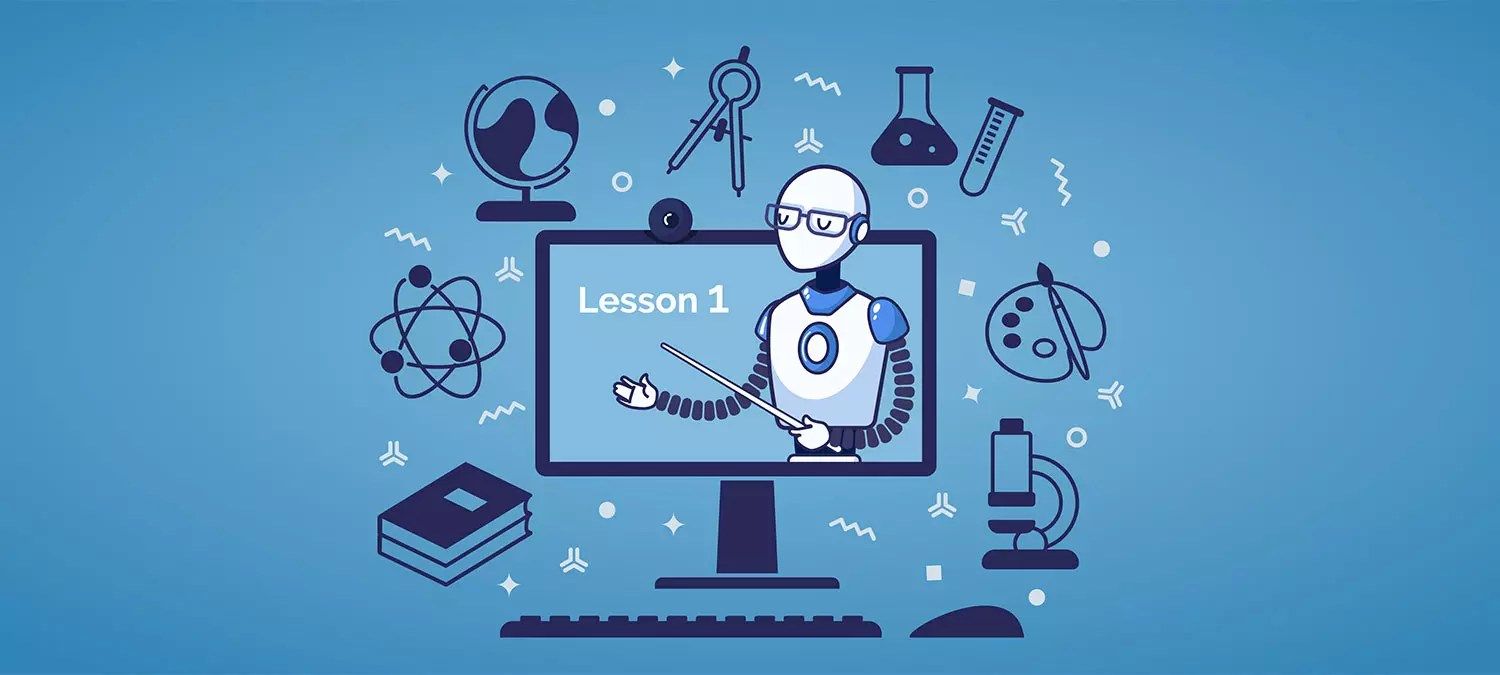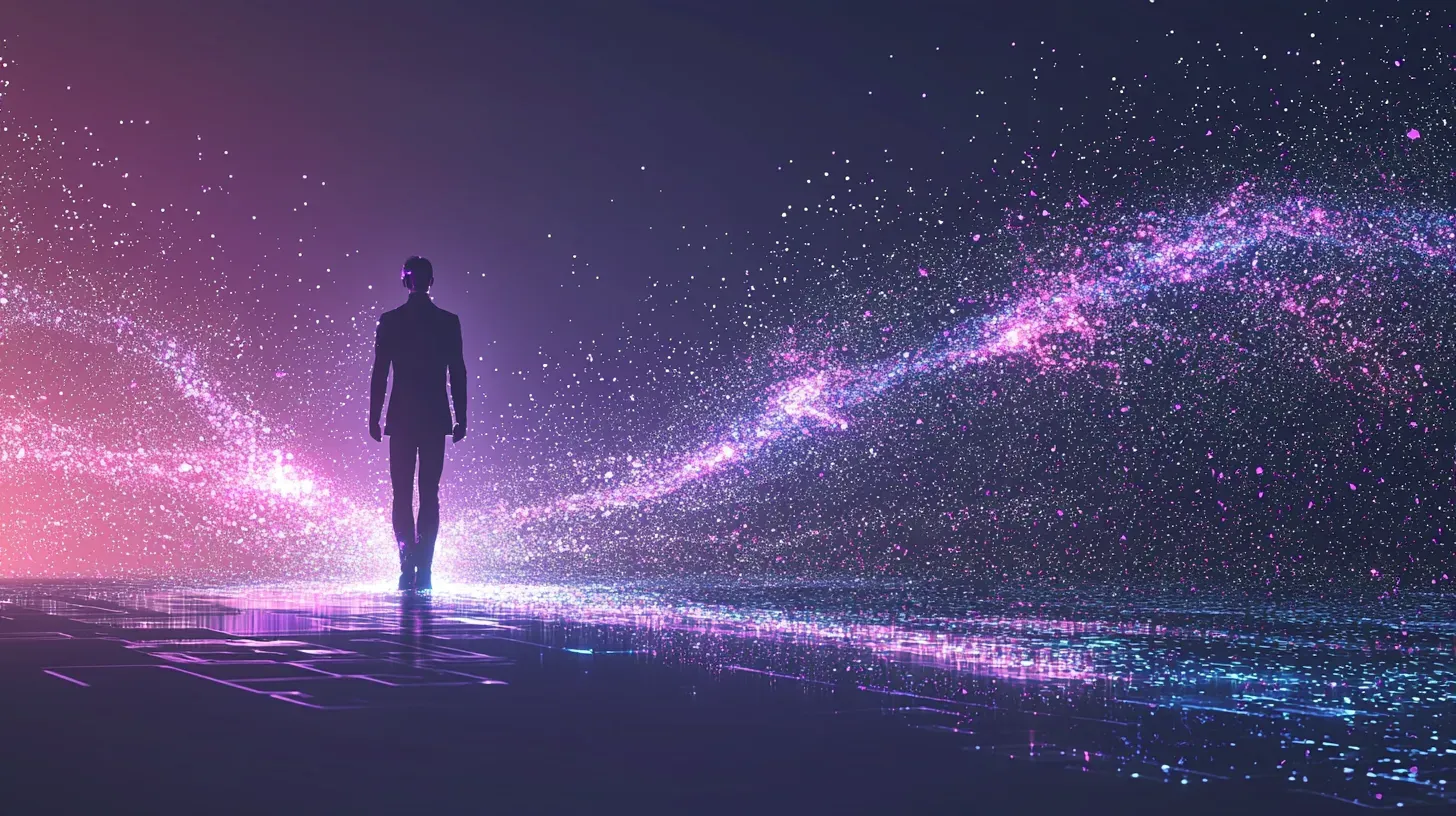The School of Tomorrow: How AI in Education Changes How We Learn

We live in exponential times, and merely having a digital strategy focused on continuous innovation is no longer enough to thrive in a constantly changing world. To transform an organisation and contribute to building a secure and rewarding networked society, collaboration among employees, customers, business units and even things is increasingly becoming key.
Especially with the availability of new technologies such as artificial intelligence, organisations now, more than ever before, need to focus on bringing together the different stakeholders to co-create the future. Big data empowers customers and employees, the Internet of Things will create vast amounts of data and connects all devices, while artificial intelligence creates new human-machine interactions. In today’s world, every organisation is a data organisation, and AI is required to make sense of it all.
Artificial Intelligence is Here to Stay
The development of AI is speeding up daily. Only recently, Google’s DeepMind created the AI AlphaStar that secured a decisive victory against two grandmaster players of the game of StarCraft II. In a series of test matches they played, the algorithm won 5-0. Day by day, AI is becoming more intelligent and better adaptable to complex situations.
Moreover, in April 2019, OpenAI moved the barrier even further. Its AI system, OpenAI Five, beat a world champion e-sports team in the game Dota 2 – a complex strategy game that requires players to collaborate to win. AI has moved into strategy.
With AI developing at such speed, it is challenging to keep up with all the changes. However, having at least a basic understanding of what artificial intelligence is and what it is capable of becomes more and more required in today’s society. Not only do we need an excellent educational system to train AI developers, but AI can also significantly improve education.
AI and Education
The opportunities for AI in education are enormous, ranging from personalised learning plans and coaching using AI, robot teachers, automation of administrative tasks to equal access for all students. AI will change education forever. Let’s look at how AI is changing education.
Personalised Learning
China Marching Ahead with AI in Classrooms. They are rapidly reshaping its education system, and AI is central to changing how students learn. In the past years, a completely new industry appeared, and millions of students now use some form of AI to learn. This ranges from digital learning platforms where AI mentors students to tracking emotions and attention in classrooms using facial recognition. AI is becoming pervasive in the Chinese education system.
One of China’s largest AI education companies is Squirrel. Squirrel AI Learning is an AI-powered education provider. The company offers personalised after-school tutoring using adaptive learning. This entails that the technology responds to how a student performs. Consequently, each student receives a tailor-made, highly-personalised training program. Through assessments, the system understands a student’s weaknesses and strengths. Students will only learn what they do not know. Once a student has mastered a subject, the system moves on.
So far, 2 million students have signed up, and there are 2000 physical learning centres. Students can choose between working online from home or learning at a learning centre. It allows students in rural areas, with lack of access to good teachers, to learn similar to students in Beijing.
Squirrel aims not to replace teachers but to help teachers with AI. AI cannot replace emotional support. According to Squirrel, 80% of the students using the system, perform better, are more focused and require less time to study.
Facial Recognition in Education
Another technology used in education is face recognition. Facial recognition is widely used in China. Not only on the streets and to determine the amount of toilet paper people receive in public toilets, but increasingly also in schools and classrooms. First of all, students need to scan their faces to access their campus. They no longer need wallets or ID passes, as they can identify themselves or pay in the canteen with their face.
Once they are in the classroom, a camera tracks whether students are paying attention or not. Recently, a Chinese high school in Hangzhou started experimenting with facial-recognition technology that scans students every 30 seconds. The information is shared with the teacher parents and school leaders so that everyone instantly knows who pays attention or not. However, whether the students like it remains to be seen.

Source: Sixth Tone
Smart and Adaptable Content
Traditionally, students learned using a textbook, which was carefully created and updated once a year. However, often, students pass their books on to the next year, resulting in textbooks that can easily become outdated. Especially with the fast-changing world we live in, this can be problematic.
With the use of digital textbooks, it becomes possible to update the books whenever necessary. However, digital textbooks have many more advantages. They offer a more interactive learning experience, and the reader receives customised content. The, Chinese, company Ponddy creates smart textbooks. The textbooks are completely configurable and customizable, allowing students to learn in the most optimised way.
Another company is the Spanish AI education startup Netex Learning. This company allows professors to develop digital curriculums and high-impact learning experiences. The content is instantly available across different types of devices, resulting in a seamless experience for students.
Automatic Grading
Understanding how students learn and read text is valuable information. Once you use AI to understand how students learn, content can be adapted in real-time. In addition, AI can help to understand how a student answers exam questions. Often, how a student answers a question in an exam explains more about the knowledge and skills present than the actual answer.
Consequently, teachers can now automate their grading, as well as many other administrative tasks. This is especially relevant for multiple-choice and fill-in-the-blank testing, although automatic grading of essays is around the corner as well. Already, companies such as Grammarly provide detailed feedback on the grammar of a text. With AI writing improving rapidly, it is a matter of time before AI can also grade essay.
Conclusion: Teachers Become Coaches
When AI steps in, the role of the teacher changes. In the school of tomorrow, teachers and machines collaborate to help students learn faster, more efficiently and better. This will allow teachers to focus on different aspects of the job.
With AI taking over tasks such as testing and grading, developing a personalised curriculum or understanding a student’s emotions, the teacher will have more time for social skills. Consequently, the role of teachers will move from teacher to coach and/or facilitator. The teacher can provide emotional support or direct the student in the right direction.
AI in education will also provide students in remote areas access to better education. Personalised, online education will be the next billion-dollar industry. With internet access becoming ubiquitous even in remote areas and developing countries, all of a sudden, a large group of students can have access to the best education. What started years ago with MOOCs, will be brought to the next level, thanks to AI in education.
Image: Olga Kononok/Shutterstock





